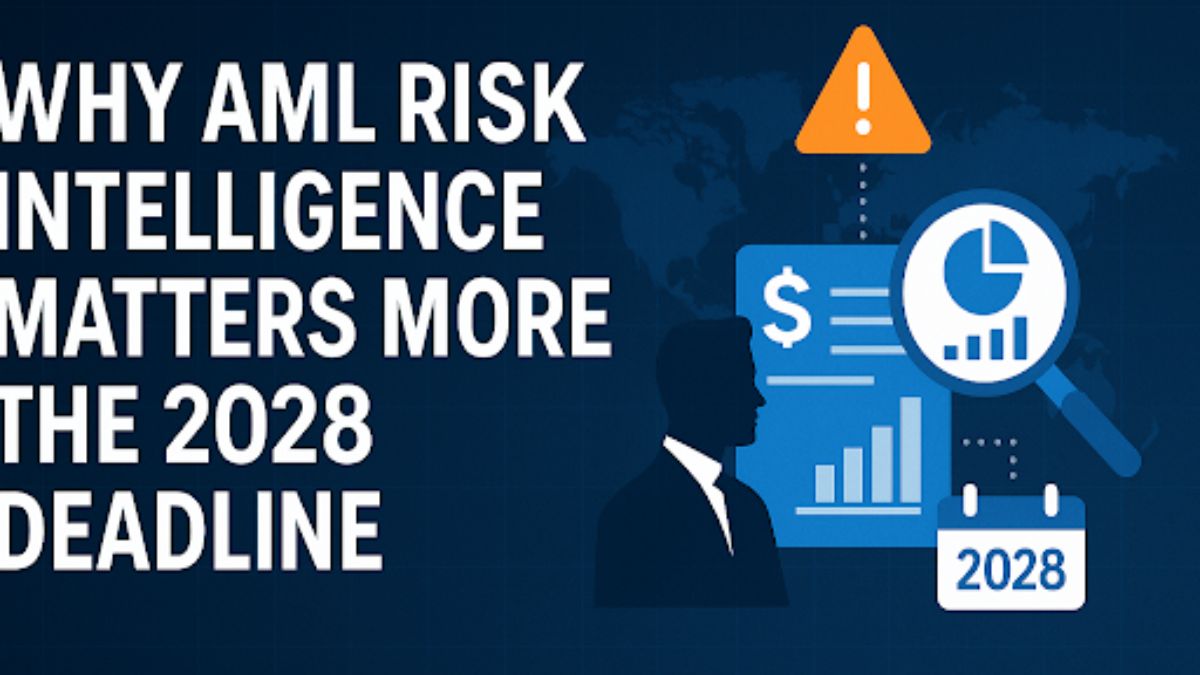FINANCE
The Importance of Understanding Payday Loans

The influence of payday loans on your credit score can vary depending on how you manage the loan. Financial decisions, big or small, can have long-lasting impacts on your financial health. Therefore, understanding the effects of payday loans on your credit score is critical.
What is a Payday Loan?
Before discussing the impact of payday loans on your credit score, it’s important first to understand what payday loans are. Essentially, a payday loan is a short-term loan that individuals typically take to cover immediate cash needs until their next payday. The loan amount is generally small, and high interest rates characterise it.
Payday Loans and Your Credit Score
One commonly held belief is that payday loans do not affect your credit score. This notion is partially accurate, in the sense that simply taking out a payday loan will not necessarily lower your credit score. But the interaction between payday loans and your credit score is much more complex than that.
How Do Payday Loans Impact Your Credit Score?
A payday loan might initially seem like a quick fix for immediate financial needs, but it might have long-term effects on your credit score. Here is how:
- On-time Repayments: If you repay your payday loan on time, it might not impact your credit score negatively. Some lenders might even inform credit agencies about your regular payments, potentially improving your credit score.
- Missed Repayments: However, if you fail to repay the payday loan on the agreed terms, things take a turn for the worst. Missing a repayment or defaulting on your payday loan can severely harm your credit score. Lenders could report to the credit reference agencies about your missed payments. This late payment record remains on your credit file for six years, adversely impacting your credit score and your chances of getting credit in the future.
- Frequent Borrowing: Regularly resorting to payday loans to meet your financial requirements might be a red flag for future lenders, even if you have repaid them on time. It may suggest to them that you are not managing your finances effectively.
Final Thoughts
The relationship between payday loans and your credit score should not be taken lightly. It is essential to understand how your financial decisions impact your credit health. While payday loans can help tide over immediate financial needs, they could potentially harm your credit score if not managed effectively. Always remember to borrow responsibly, making sure you are confident that you can repay the loan fully and on time.
FINANCE
Why AML Risk Intelligence Matters More Than The 2028 Deadline

AML used to sit quietly in the background of the investment adviser playbook. That period is ending fast. FinCEN’s 2024 final rule shifts many SEC registered RIAs and exempt reporting advisers into the Bank Secrecy Act definition of “financial institution.” This brings full AML and CFT responsibilities, including SAR filing, recordkeeping, and independent testing.
FinCEN later proposed shifting the effective date from January 1, 2026 to January 1, 2028. The change only affects timing. It does not reduce expectations. The rule is still broad, still mandatory, and still focused on building stronger national security safeguards through the investment advisory sector.
At the same time, enforcement activity continues to climb. Global AML fines reach into the billions every year, and North American firms are often among the most heavily penalized. Some cases reach hundreds of millions for a single institution.
For RIAs, the message is clear. AML is not a side task. It is a core part of risk, revenue protection, and firm reputation. Advisers that treat the 2028 date as a distant formality will find themselves scrambling while clients, auditors, and regulators ask hard questions.
What Is AML Risk Intelligence For RIAs And Wealth Managers?
AML risk intelligence describes how a firm uses data, people, and technology to understand financial crime exposure in context. Instead of only reacting to rule based alerts, risk intelligence asks deeper questions:
- How risky is this client or product in the current environment?
- Does this pattern match what we know about the client or their peer group?
- Are there links to high risk jurisdictions or counterparties?
- What story would this data tell if an examiner reviewed it tomorrow?
For RIAs, strong AML risk intelligence usually includes:
- A documented risk assessment aligned with strategy and offerings
- A unified view of clients, entities, and fund flows across custodians
- Monitoring that uses both rules and behavioral analytics
- SAR processes that staff understand and use confidently
- Governance that connects AML to board oversight and investment decisions
With these in place, AML shifts from being a burden to acting as an early warning radar for issues that can harm clients or disrupt operations.
How FinCEN’s Investment Adviser AML Rule Raises The Baseline
The final rule is not intended to convert RIAs into banks, but it does set a new minimum standard across the advisory landscape.
Who is covered
FinCEN’s rule applies to:
- SEC registered RIAs with more than 110 million dollars in assets under management
- Exempt reporting advisers that file with the SEC, including many private fund advisers
These firms now fall clearly inside the BSA perimeter and must build AML and CFT programs.
Regulatory expectations
Covered firms must implement:
- A risk based AML and CFT program
- A designated AML officer with real decision making authority
- Ongoing training for relevant staff
- Independent testing
- SAR filing
- Recordkeeping that supports law enforcement requests
The 2028 date provides time, but it is meant for structured planning, not procrastination.
Flagright’s guide on the FinCEN AML rule for RIAs explains how the rule works, how penalties apply, and why firms that wait until the last minute face significant exposure in both operations and enforcement.
Why Investors Now Care Deeply About AML Controls
AML has moved into the spotlight for allocators, consultants, and wealth clients. Several forces explain this shift.
High profile failures
Major leaks and investigations in recent years revealed how trusted institutions processed suspicious flows for long periods without intervention. These stories raised questions about culture and governance across the financial sector.
Growing fine totals
AML and sanctions penalties continue to rise. Even when firms survive financially, they face:
- Loss of trust
- Harder fundraising conditions
- Higher compliance costs for years
Link between AML and governance
Investors now treat AML as a pillar of good governance rather than a narrow regulatory concern. Poor controls signal weak oversight and higher operational risk.
Advisers who can clearly explain their risk assessment, SAR process, and monitoring technology stand out. Vague claims about following “industry standards” no longer satisfy allocators.
Where Traditional RIA Controls Fall Short
Many RIAs rely on partial or outdated controls. Under the new rule, these gaps become obvious.
1. Static policies not matched to real activity
Some policies change only during due diligence cycles. They may not reflect current clients, jurisdictions, custody structures, or products. Regulators expect a direct link between written policy and daily practice.
2. One time onboarding checks
Some firms collect KYC information once, store it, and never update it. Risk based programs require ongoing updates when:
- Ownership changes
- New jurisdictions appear
- Negative media increases
- Transaction behavior shifts
Static KYC files cannot support ongoing monitoring.
3. Spreadsheet based monitoring
Manual spreadsheets break fast when:
- Firms use multiple custodians
- Strategies involve frequent cross border movements
- Client structures include several layers
Modern platforms such as Flagright support unified monitoring, screening, and case management so RIAs no longer rely on scattered tools or manual trackers.
4. Weak governance tone
When AML is treated as a cost center, problems appear:
- Escalations slow down
- Budget requests are ignored
- Compliance sits far from investment committees
Regulators consider weak governance a sign of serious risk.
How AI And Automation Transform AML For RIAs
AI is not abstract for RIAs. It creates very practical advantages.
Smarter monitoring
AI models analyze historical and peer behavior, detecting patterns such as:
- Transfers timed just below thresholds
- Sudden activity spikes not linked to portfolio events
- Unexpected routes through high risk jurisdictions
This reduces false positives and surfaces higher quality alerts.
Dynamic client risk scoring
Instead of a static rating, dynamic scoring updates as new signals appear:
- PEP exposure from a new director
- Negative media about an owner
- Shifts in transaction geography
Monitoring rules adjust automatically as risk changes.
Faster investigations and SAR workflows
AI tools can:
- Merge related alerts into a single case
- Pre fill relevant details
- Suggest common typologies
- Shorten review cycles
Flagright provides AI-driven AML compliance solutions that help RIAs stay exam ready even with lean compliance teams. Their platform unifies monitoring, screening, and case management in a central environment that reduces workload and strengthens documentation. Many RIAs evaluating upgrades pair these capabilities with financial compliance software to create standardized workflows and stronger control frameworks that scale with growth.
Key Questions RIAs Should Answer Before 2028
What happens if an adviser reaches 2028 without a real AML program?
FinCEN can impose civil money penalties for willful BSA violations. The SEC may add sanctions if disclosures are misleading or risks are ignored.
How long does it take to build a functional AML program?
A realistic timeline includes:
- Several months for risk assessment and program design
- Several more for data mapping and technology integration
- Ongoing cycles of training and independent testing
Do smaller advisers need bank level systems?
Expectations are proportional, but all firms need:
- A risk based program
- Reliable screening
- Basic monitoring
- Clear escalation and SAR documentation
A Practical 12 To 18 Month AML Roadmap
Phase 1: Assess and design (first three months)
- Map client types, business lines, and flows
- Identify higher risk areas
- Document gaps
- Create a risk based framework
- Gain senior leadership approval
Phase 2: Data and tools (next six months)
- Map core data sources
- Fix key inconsistencies
- Choose technology
- Centralize case management
- Build early dashboards
Phase 3: Training and dry runs (months ten to eighteen)
- Train teams with real scenarios
- Run mock investigations
- Test SAR preparation
- Invite independent reviewers
By the end, staff should be confident and exam ready.
Turning AML Readiness Into An Investor Story
Stronger AML controls can strengthen fundraising and retention. Practical methods include:
- Adding an AML section to RFP materials
- Offering a walkthrough of the risk model
- Sharing high level results from independent tests
- Showing links between AML, cyber, and governance
Investors do not expect zero risk. They expect clarity, consistency, and honesty.
The Strategic Advantage Of Starting Now
The years leading up to 2028 offer a unique window. RIAs that move early will:
- Build stronger operational foundations
- Avoid rushed deployments
- Reduce future exam pressure
- Strengthen trust with investors
- Prevent surprises once enforcement tightens
AML readiness is not only about compliance. It is about stability, credibility, and long term growth. RIAs that build true AML risk intelligence now will lead the next chapter of the advisory industry with confidence.
FINANCE
From Tax Troubles to Triumph: Beginning a New Journey After Tax Issues

Dealing with tax problems can be one of the most stressful situations an individual or business owner can face. The consequences of unresolved tax issues can permeate every aspect of one’s financial stability and mental well-being. Fortunately, with the right support and strategies, it is possible to overcome these challenges and start a new chapter. In this article, we’ll explore the path from understanding the impact of tax troubles to rebuilding a strong financial foundation.
Navigating the Complex World of Tax Resolution: Finding the Right Help
Resolving tax issues can feel like navigating a labyrinth with its own set of complex rules and regulations. It’s a path that often requires expert guidance. Seeking a trusted professional, such as a certified public accountant or a tax attorney, can be a critical step toward achieving tax relief. These professionals understand the intricacies of tax laws and can offer strategies tailored to one’s unique situation.
For some, the assistance of specialized tax relief services can be especially beneficial. These services focus on negotiating with tax authorities to find viable solutions, such as installment plans or offers in compromise. With a tax relief advocate in your corner, it’s possible to gain a more manageable foothold to start resolving tax liabilities.
One must exercise due diligence before enlisting help, as the tax resolution industry includes a mix of reputable providers and others with less ethical practices. It’s imperative to check credentials, read reviews, and, perhaps most importantly, ensure transparent and clear communication. A legitimate tax professional should be upfront about their fees and the realistic outcomes of your case.
The Road to Compliance: Setting Up a Sustainable Tax Management Plan
Once immediate tax issues have been addressed, it’s essential to prevent recurring problems by establishing a sustainable tax management plan. This includes staying up-to-date with tax obligations and understanding potential deductions and credits to minimize liability legally. Setting aside funds regularly to cover estimated tax payments can prevent future surprises and reduce stress around tax season.
Education is another cornerstone of sustainable tax compliance. Investing time to understand the nuances of tax laws—or working closely with a professional who does—can be enlightening and empowering. For instance, individuals seeking to deepen their knowledge might consider a communications degree program that offers courses on financial literacy and tax communication to help convey these complex ideas effectively.
A crucial part of any tax plan is maintaining accurate records. Organizing receipts, statements, and other documentation throughout the year can make tax preparation smoother and reduce the risk of errors. Technology solutions, such as accounting software, can streamline this process and ensure that individuals and businesses have real-time snapshots of their financial health.
Leveraging Tax Mistakes as Learning Opportunities for Financial Growth
Tax mistakes, while daunting, can often serve as valuable learning experiences. The insights gained from addressing tax issues can foster greater financial literacy and inspire more thoughtful money management strategies. For many, this newfound knowledge ignites a passion for financial planning and encourages a proactive approach to all aspects of personal finance.
Individuals can take this opportunity to re-evaluate their financial goals and align their spending habits with their long-term objectives. A comprehensive review of income, expenses, and investments can reveal opportunities for savings and growth that may have been overlooked before the tax mistakes occurred.
Overall, recovering from tax issues is far from a simple endeavor, but it is fraught with opportunities for growth and improvement. By understanding the impact of tax troubles, seeking appropriate help, setting up a management plan, learning from past mistakes, and methodically rebuilding one’s credit and reputation, individuals can turn a problematic chapter into a triumphant financial comeback.
FINANCE
Creative Ways to Reward and Motivate Teams with Custom Coins

Looking for a fun and unique way to reward your team?
Custom coins are a creative solution. They are memorable, meaningful, and easy to personalize. These coins can boost morale and build team spirit. Use them to celebrate wins, milestones, or great performance. Show your team that their efforts matter.
Ready to inspire your team with something special? Let’s explore how custom coins can make a big impact!
Celebrate Milestones
Milestones are moments to celebrate hard work and progress. Custom coins can make these moments even more memorable. Whether it’s completing a big project or hitting a key goal, a coin is a great way to mark the achievement. It shows appreciation and boosts morale.
Giving a custom coin for a milestone also makes the accomplishment feel official. Employees will be proud to receive something that represents their success. It creates a lasting reminder of the team’s hard work. Custom coins turn milestones into meaningful celebrations.
Reward Top Performers
Recognizing top performers with custom coins is a powerful way to show appreciation. It highlights their hard work and dedication in a personal way. A custom coin becomes a meaningful symbol of their success. It motivates others to strive for excellence as well.
Coins can be designed to reflect specific achievements or milestones. This makes the reward feel unique and tailored to the individual. By recognizing top performers, you create a culture of recognition. Custom coins encourage everyone to perform their best.
Mark Team Achievements
Custom coins are a great way to mark team achievements. When a team reaches a major goal, a coin serves as a lasting reminder of their success. It’s a way to recognize the hard work that went into the achievement. Coins can make the moment feel more special and meaningful.
Designing a coin that represents the achievement helps make it unique. It could include the team’s name, the project, or the date. Every time the team sees the coin, they’ll remember what they accomplished together. This creates a sense of pride and unity within the team.
Start a Coin Collection
Starting a coin collection can be a fun way to motivate your team. Each custom coin can represent a different achievement or milestone. As team members collect more, they’ll feel a sense of accomplishment. The coins will remind them of their hard work and successes.
This collection system can encourage friendly competition and goal-setting. People will strive to earn each new coin and complete their collection. It also adds an element of excitement to the workplace. A growing collection will keep employees motivated and proud of their efforts.
Use Coins for Peer Recognition
Allowing team members to give coins to each other strengthens relationships. Peer recognition makes employees feel valued by their colleagues. Custom coins serve as a tangible way to say “thank you” for a job well done. It builds a positive, supportive culture within the team.
This system encourages everyone to acknowledge one another’s efforts. It helps spread appreciation across the team. When peers recognize each other, it boosts morale and motivation. Custom coins make recognition feel personal and meaningful.
Create Limited Edition Coins
Limited edition coins can make rewards feel even more special. These coins can be designed for rare achievements or significant events. Their exclusivity makes them highly coveted by employees. It adds excitement and makes the recognition feel more meaningful.
Giving out limited edition coins for specific accomplishments creates a sense of rarity. People will strive to earn these unique rewards. The idea of owning something exclusive drives motivation. It turns ordinary achievements into extraordinary moments.
Tie Coins to Company Values
Custom coins can be a great way to reinforce company values. Each coin can represent a specific value like teamwork, innovation, or integrity. When employees display these values, they earn a coin that shows their commitment. It helps remind everyone of what’s important in the workplace.
This practice encourages employees to live up to company values every day. It turns abstract principles into something tangible. Giving a coin for demonstrating a value makes the recognition feel personal. It motivates the team to stay focused on the values that drive success.
Trade Coins for Perks
Trading coins for perks adds an element of fun to the workplace. Employees can earn coins and exchange them for rewards like extra time off or gift cards. This system motivates people to work harder for something they really want. It also creates a sense of excitement and friendly competition.
Setting up a simple trade system makes it easy for everyone to participate. The more coins an employee collects, the better the rewards they can unlock. This helps keep motivation high and makes recognition feel more interactive. Custom coins turn everyday work into a game with meaningful rewards.
Make Coins Part of Events
Custom coins can make any event more memorable. Giving them out at conferences, team-building days, or celebrations adds a special touch. People appreciate receiving something unique that marks the occasion. It also gives them a tangible reminder of the experience.
Coins can be used to recognize achievements during the event or as tokens of participation. This turns ordinary events into something more meaningful. When people earn coins, it boosts their connection to the event. It also motivates them to get involved and contribute.
Share Success Stories With Coins
Custom coins are a great way to share success stories with your team. When a team achieves something great, giving them a coin ties the story to the recognition. The coin becomes a symbol of the effort and dedication behind the success. Every time they look at it, they’ll remember the journey.
These coins can also be a way to inspire others. Sharing the story behind each coin helps spread motivation. If you’re curious about how coins are used in recognizing success, learning what is a challenge coin might provide more insight. It’s a powerful tool for celebrating achievements and driving future success.
Learn All About Reward and Motivate Teams With Custom Coins
Custom coins are more than just rewards. They are symbols of hard work, teamwork, and success. Simple yet powerful, they make people feel seen and valued.
Whether it’s a big win or a small effort, a custom coin can say “thank you” in a lasting way. Start using creative coin ideas to boost team spirit and motivation.
Visit our blog for more!
-

 HEALTH2 years ago
HEALTH2 years agoIntegrating Semaglutide into Your Weight Loss Plan: A Practical Guide
-

 HOME IMPROVEMENT2 years ago
HOME IMPROVEMENT2 years agoHow to Choose the Perfect Neutral Area Rug for Every Room
-

 FASHION2 years ago
FASHION2 years ago7 Celebrity-Inspired Elegant Summer Dresses For 2024
-

 LAW2 years ago
LAW2 years agoTeenage Drivers and Car Accidents in California: Risks and Parental Liability
-

 CONSTRUCTION2 years ago
CONSTRUCTION2 years agoConstruction Site Safety Regulations in New York and Your Rights as a Worker
-

 LAW2 years ago
LAW2 years agoPost-Divorce Considerations in California: Modifications and Long-Term Planning
-

 HOME2 years ago
HOME2 years agoSandra Orlow: The Teen Model Who Captivated the Internet
-

 FINANCE2 years ago
FINANCE2 years agoDigital Asset Management in Florida Estate Planning




